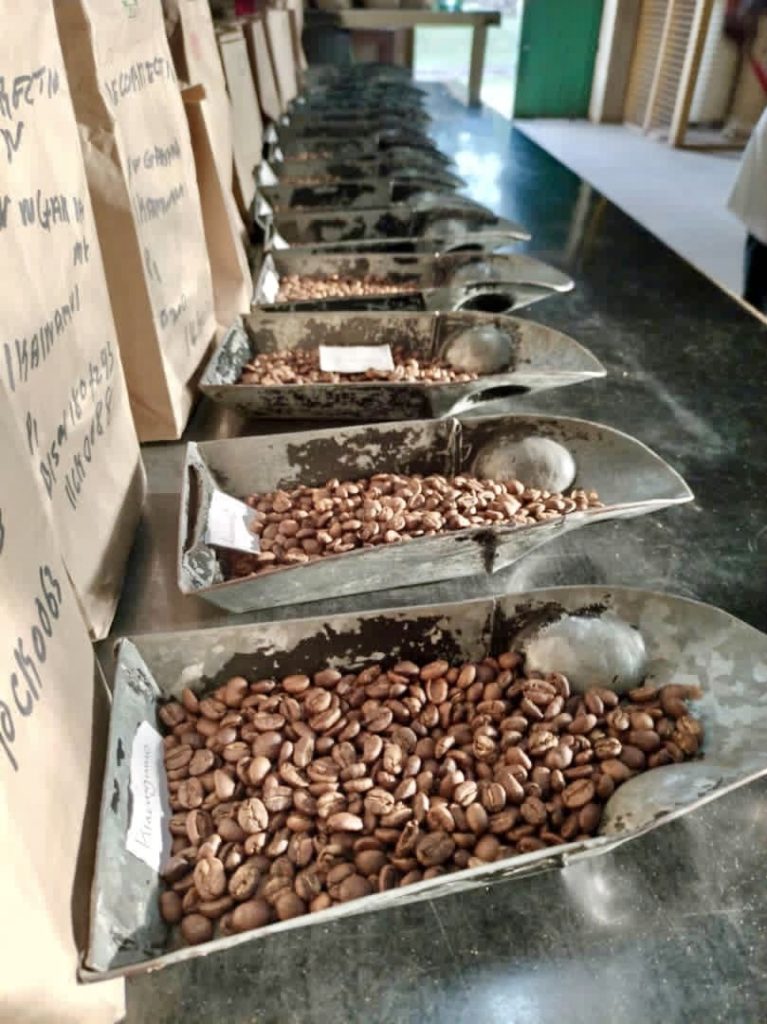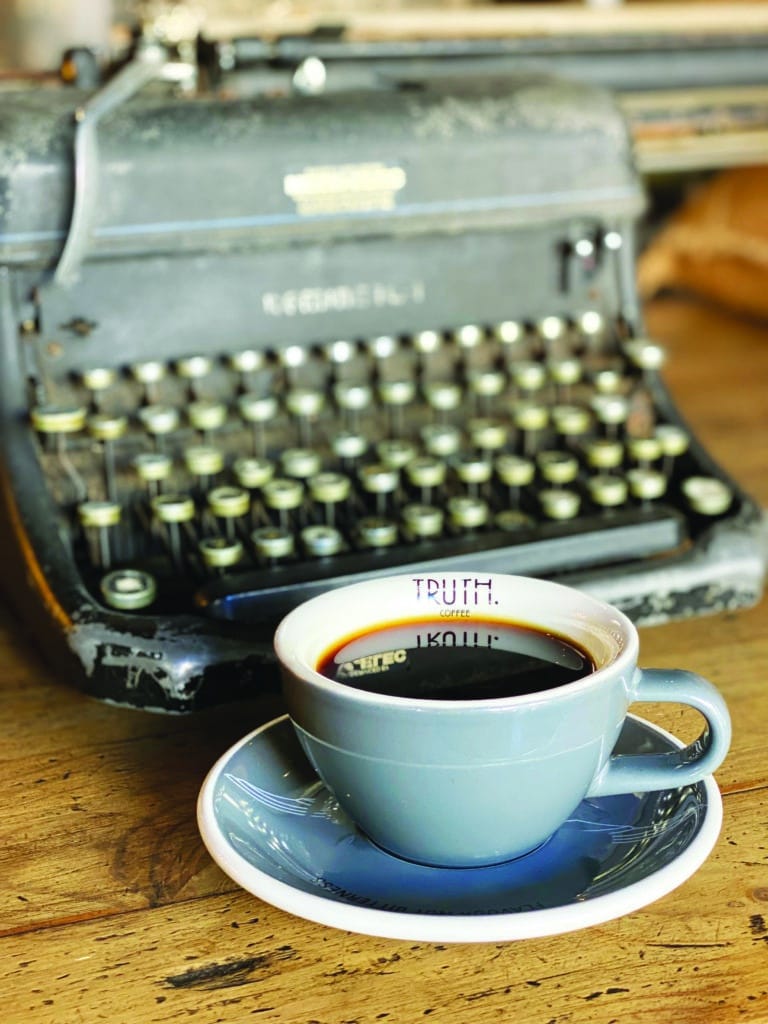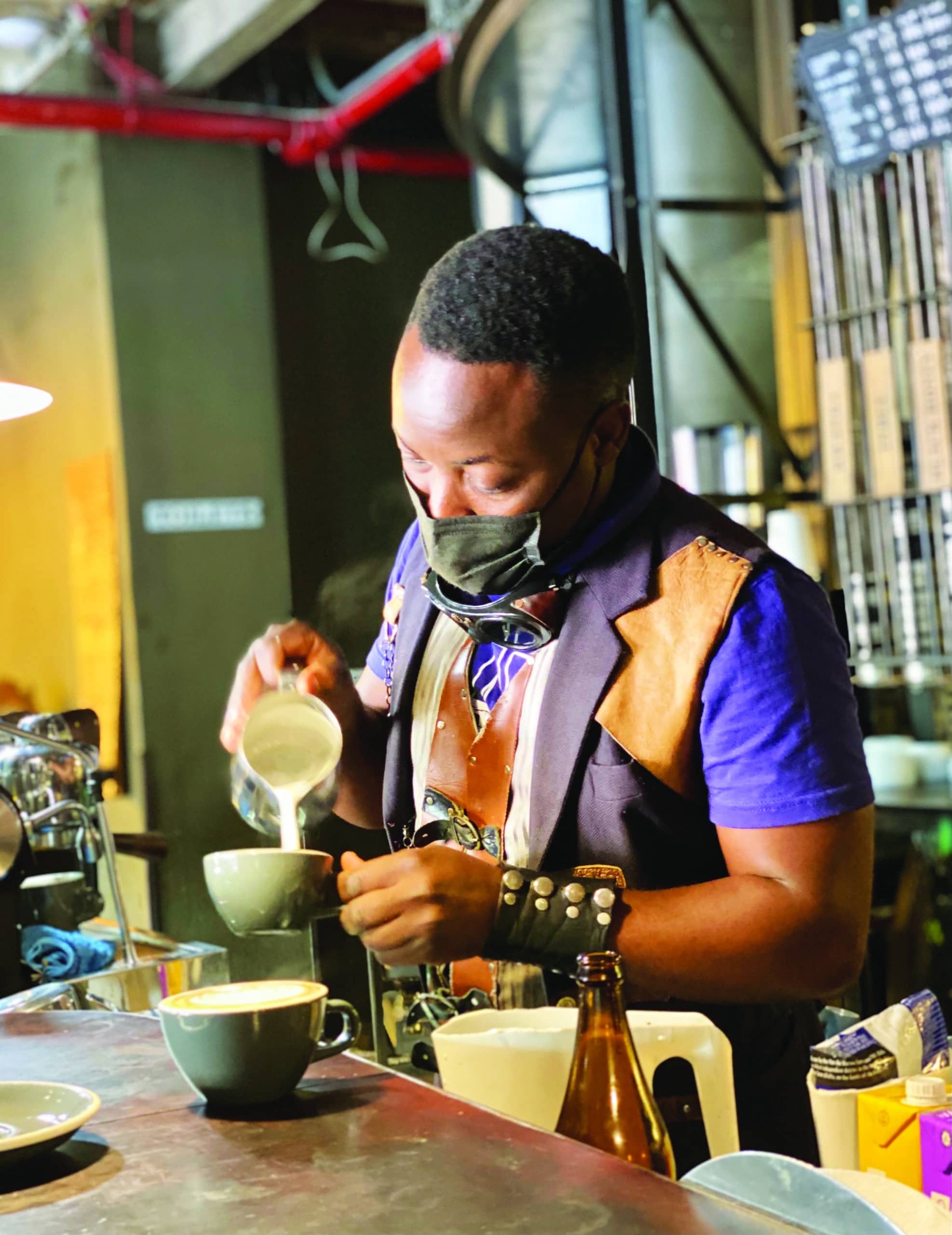Coffee shops were amongst the biggest casualties of the Covid-19 pandemic. Yet, while the café industry suffered, coffee itself was able to survive with consumers attempting to emulate the cups they craved.
By Paula Slier and Sasha Star
Motorcycles weave past minibus taxis as street vendors enthusiastically promote their wares. Flurries of people hurry by in colorful dresses while making their way to and from work. There’s a buzz in the air.
The bustling streets of Addis Ababa, the capital and largest city of Ethiopia, could be mistaken for almost any city on the African continent, but amidst the whirl of daily life in what is known as “the political capital of Africa”, is something that makes the scene characteristically Ethiopian.
The air in the East African country is permeated by the rich aroma of fresh coffee being brewed on almost every corner. Those with well-developed palates pick up hints of citrus fruit and chocolate, berries and spice. It is a heady fragrance that manages to both comfort and invigorate simultaneously.

“Coffee is in the blood of every Ethiopian,” says Aman Adinew, who runs a coffee producing and exporting company in Addis called METAD.
“When you go to the mall or anywhere that people gather, there are women sitting and brewing traditional coffee. People sit around short stools and drink a cup or two. In offices, women prepare and serve coffee at least twice a day. So wherever you go, coffee is there.”
It seems natural that the drink has been woven into the very fabric of the country considering it is in Ethiopia that coffee originated.
According to folklore, the magic beans were discovered in the ninth century by a goat herder who noticed that his flock had an extra spring in their step after noshing on some unusual berries. He shared both his findings and the fruit with those at the nearby monastery who proceeded to make a drink which helped keep them alert throughout the many hours of prayer. With such a miraculous effect, it was not long before news of the berries traveled far beyond the Kaffa province from where the name coffee is derived.
From its humble and fairly inconspicuous beginnings, coffee has become ingrained in societies around the world. Millions indulge in at least one cup per day, with many partaking in the ritual of starting their day with the energizing elixir. One often dare not engage with them before they have consumed that initial sip.
“It’s the last legal drug,” laughs David Donde, owner of Truth Coffee Roasting in Cape Town, South Africa. In 2016, the steampunk-inspired café was named as the best in the world by The Telegraph.
“The drug in coffee isn’t actually caffeine; it’s endorphins. It’s the idea of discovery — you discover this incredible coffee, this incredible new bean.” Donde also believes that coffee shops offer an attractive alternative to bars and other establishments where liquor is the beverage of choice. “In a coffee shop, you can have the social gathering without the anti-social component which too much alcohol brings. Too much coffee, people invent things; too much beer and we kill each other.”
It is much the same in the birthplace of the caffeinated brew. “Neighbors will brew coffee and invite each other. And when they sit together, they discuss family matters, social issues, politics. It’s a social event,” explains Adinew.
While drinking coffee is very much a part of Ethiopian culture, the same is not true for all African countries that are famous for their beans. “In Kenya, we don’t drink coffee. We are more British influenced. Largely, we Kenyans drink tea,” says coffee farmer Haron Wachira who lives in Kirinyaga, at the foot of Mount Kenya.
Although Kenyan coffee is regarded as being amongst the best in the world, Wachira believes that the locals’ affinity for favoring tea is actually damaging to coffee.
“New bean varieties have been introduced over the years… But because Kenyans don’t drink coffee in general, the researchers themselves are people who are less focused on the taste and more on the production. There is only an interest in coffee where it is related to money.”
The locals may not appreciate the nuances of Kenyan coffee, which is said to be brighter and more acidic than its Ethiopian counterpart, but the beans are enjoyed by coffee connoisseurs around the world.
Coffee shops were amongst the biggest casualties of the Covid-19 pandemic, with worldwide lockdowns forcing millions to close. Yet, while the café industry suffered, coffee itself was able to survive with consumers attempting to emulate the cups they craved.
African Coffee Roasters, a roasting facility situated an hour and a half from Nairobi in Kenya, produces 140 different coffee products which can be found on the shelves and in speciality coffee shops in Denmark, Finland, Holland, and other European countries. The company’s head of quality, Stephen Vick, noticed an increase in people buying coffee during the pandemic — and better-quality coffee at that.

“During Covid, consumers became interested in learning about new flavor profiles. While stuck at home, people realized they could make really nice coffee and actually make it taste like it does in the coffee shop,” Vick says.
Brewing a good cup of coffee seems to be less of an art and more of a science. “It’s about great beans, a deep understanding of what to do with those beans, understanding the extraction, and most importantly, a great grinder,” explains Donde. “I describe it as a three-dimension seesaw: the bean on one side, grind size on the other, and then the amount of time it will be brewed for and at what temperature. If you adjust one, you can compensate by adjusting for another, but the variables must be balanced.”
The practice of drinking the roasted beans may be popular in Ethiopia, but most locals have never actually sampled the best of what their nation can produce. “The government insists that we export the high-end coffees, so they are not sold locally,” notes Adinew. It is a method that appears to be paying off considering coffee accounted for 5% of the East African country’s GDP and brought in $900 million during the last fiscal year.
Yet despite the lucrative nature of coffee production and export, those on the ground who grow the fruit are often not privy to the benefits. Numerous coffee roasters and cafés have committed to using only fair trade beans that promise to give a percentage of the sales back to the farmers, but Adinew believes the idea may be better in principle than practice.
“With such certifications, sometimes they are designed to help the certifier more than the farmer as they don’t have the mechanisms to check whether the farmer is actually benefitting. It’s a good start, but there needs to be more regulation to ensure that the farmers get that premium.”
Wachira agrees: “I think that a farmer who puts so much time into making a good cup of coffee should actually get a decent wage from the coffee and not become a slave.”
Coffee bean farmers are also facing a problem much larger than themselves — that of climate change. “Research is being done into how to save coffee as a species, but we don’t know where coffee is going to be in 2050 or 2075 as far as supply goes,” admits Vick.
The one hopeful element is that as plans are put in place to mitigate the effects of the phenomenon through carbon offsetting, coffee-growing zones happen to be neighboring areas for trees which can be grown to facilitate offsets.
Even if the consequences of climate change can be brought under control, the world’s demand for the enticing beverage could see it taking on a new form. Coffee is currently in its fifth wave, which has focused predominantly on the business element. According to Donde, the next could be potentially sacrilegious: “There are guys who are trying to manufacture coffee out of non-coffee ingredients in the same sense as scientists having created lab-grown meat. It sounds horrific to me, but I don’t know what I don’t know yet.”
Regardless of the world’s ever-changing dynamic, coffee has proven itself to be a constant companion — a simple reminder to take life one sip at a time.
